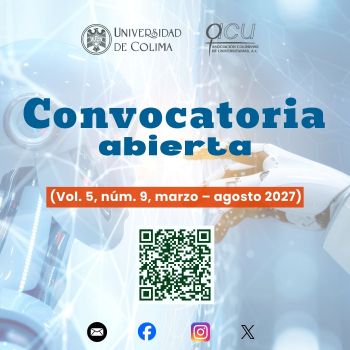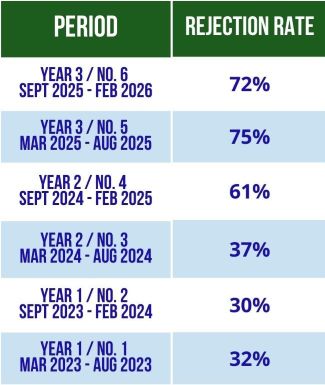Humanized attention in public institutions:
voices of women victims of gender violence who come to denounce and surrender due to the precariousness of the service
Keywords:
gender violence, humanized care, education, communication, in-service trainingAbstract
According to the World Health Organization (2005), any situation that triggers aggression and that alters emotional, physical and mental integrity, is known as gender violence. In Colombia, many of the women who have experienced this situation seek guidance in different contexts and institutions, encountering a panorama of hostility, signaling, and arbitrariness. For this reason, the objective of the research sought to give a voice to women attacked by their former partners in relation to the perception of the humanized care they receive when they request help in different institutions. The methodology was based on a nested mixed study with qualitative prevalence, descriptive scope and phenomenological design. Ten women with a history of violence participated for the collection of information for an implemented focus group strategy. Some relevant results show that women try to seek help in prosecutors’ offices and police stations, however, some report unpleasant interactions characterized by taunts by officials, unfriendly treatment, derogatory comments, looks of arrogance and little desired to be listed to. From the foregoing, it is concluded that it is essential to implement training processes based on humanized care aimed at officials who serve vulnerable or emotionally weak populations. Likewise, the participating women report that in most cases they decided not to complete their processes
due to the emotional triggers that lead to unworthy treatment when more support is required.
Downloads
Metrics
References
Ariza, C. (2012). Soluciones de humanización en salud en la práctica diaria. En: Revista Enfermería Universitaria, 1(9) México, pp. 41-51. ISSN 1665-7063.
Correa, M. (2016). La humanización de la atención en los servicios de salud: un asunto de cuidad. En: Revista Cuidarte, 7(1), pp. 1227-1231. DOI: https://doi.org/10.15649/cuidarte.v7i1.300.
Gómez, M. (2006). Introducción a la metodología de la investigación científica. Argentina: Editorial Brujas.
Hernández, R.; Fernández, C., y Baptista, P. (2016). Metodología de la investigación. Sexta edición. México D.F, México: Mac Graw Hill.
Morrison, A.; Ellsberg, M., y Bott, S. (2005). Cómo abordar la violencia de género en América Latina y el Caribe. Análisis Crítico de intervenciones. México D.F, México: Banco Mundial, PATH.
Organización Mundial de la Salud OMS (2005). Estudio multipaís de la OMS sobre salud de la mujer y violencia doméstica contra la mujer. Suiza: Diseño Gráfico OMS.
Valles, M. (1999). Técnicas cualitativas de investigación social, reflexión, metodología y práctica profesional. España: Síntesis Sociológica.
Sitios Web:
Avellaneda, M. (2012). Mujeres profesionales y sus narrativas de violencias en las relaciones de pareja. Tesis para obtener el título de Magíster en Trabajo Social, Departamento de Trabajo Social, Universidad Nacional de Colombia. Colombia, Consultado el 1 de agosto de 2019. Disponible en http://bdigital.unal.edu.co/9786/1/mireyaavellanedagutierrez.2012.pdf
Bermejo, J., y Villaciero, M. (2013). El compromiso de la humanización en las instituciones socio sanitarias. En: José Carlos Bermejo. Consultado el 22 de febrero de 2019. Disponible en http://www.josecarlosbermejo.es/el-compromiso-de-lahumanizacion-en-las-instituciones-sociosanitarias/
Calvo, G., y Camacho, R. (2014). La violencia de género: evolución, impacto y claves para su abordaje. En: Enfermería Global, 13(33), 424-439. Consultado el 19 de diciembre de 2020. Disponible en http://scielo.isciii.es/scielo.php?script=sci_arttext&pid=S1695-61412014000100022&lng=es&tlng=es.
Plan Nacional de Formación y capacitación 2020 – 2030 (2020, marzo). Departamento de función pública. Consultado el 20 de diciembre de 2020. Disponible en file:///C:/Users/WIN7/Downloads/Plan%20Nacional%20de%20Formaci%C3%B3n%20y%20Capacitaci%C3%B3n%202020%20-%202030%20-%20Marzo%20de%202020.pdf
Ley Código del Menor, Decreto 2737 de 1989. Título segundo de la policía de menores. Colombia, 27 de noviembre de 1989. Consultado 8 de octubre de 2019. Disponible https://www.oas.org/dil/esp/Decreto_2737_de_1989_Colombia.pdf
Ley Organización cuerpo de Policía Nacional de Colombia. Artículo 218, Constitución Política Nacional. Colombia, 4 de julio de 1991. Consultada el 8 de octubre de 2019. Disponible en https://www.constitucioncolombia.com/titulo-7/capitulo-7/articulo-218
Ley Funciones y deberes de la Fiscalía General de la Nación de Colombia. Artículo 250 Constitución Política Nacional. Colombia, 4 de julio de 1991. Consultada el 8 de octubre de 2019. Disponible en https://www.fiscalia.gov.co/colombia/la-entidad/funciones/
Ley de las normas rectoras de la ley penal colombiana, ley 599. Código Penal Colombiano, Congreso de la Republica. Colombia, 24 de julio de 2000. Consultada el 8 de octubre de 2019. Disponible en https://www.oas.org/dil/esp/Codigo_Penal_Colombia.pdf
Medicina legal (2017). Reporte comparativo 2016, 2017 violencia contra las mujeres. En: Medicina Legal y Ciencias Forenses. Consultado el 2 enero de 2021. Disponible en https://www.medicinalegal.gov.co/documents/20143/57992/Violencia+contra+las+mujeres.pdf
Moreno, S. (2019). Forensis 2018, Datos para la vida, reporte anual de medicina legal, violencia contra la mujer, boletín epidemiológico, Grupo Centro de Referencia Nacional Sobre Violencia. Consultado el 12 de octubre de 2019. Disponible en https://www.medicinalegal.gov.co/documents/20143/386932/Forensis+2018.pdf/be4816a4-3da3-1ff0-2779-e7b5e3962d60
Gutiérrez, R. (2017). La humanización de (en) la Atención Primaria. En: Revista Clínica de Medicina de Familia, 10 (1), pp. 29-38. Consultado el 15 de marzo de 2020. Disponible en http://scielo.isciii.es/scielo.php?script=sci_arttext&pid=S1699-695X2017000100005&lng=es&tlng=es.
Monje, C. A. (2011). Metodología de la Investigación Cuantitativa y Cualitativa, Guía didáctica. En: Sociología en la red – divulgación innovación y tecnología para la UNJFSC. Consultado el 26 de marzo de 2017. Disponible en https://sociologiaenlaunjfsc.wordpress.com/2016/07/02/metodologia-de-lainvestigacion-cuantitativa-y-cualitativa-por-carlos-a-monje-alvarez/
Zurita, J. (2014). Violencia contra la mujer. Marco Histórico Evolutivo y Predicción del nivel de riesgo, Tesis para aplicar a título de Doctor, Universidad Autónoma de Madrid, Madrid, España. Consultado el 17 de julio de 2018. Disponible en http://www.violenciasexualdigital.info/wp-content/uploads/2014/03/Tesis-Violenciacontra-la-mujer-Jorge-Zurita.pdf
Downloads
Published
How to Cite
Issue
Section
License

This work is licensed under a Creative Commons Attribution-NonCommercial-ShareAlike 4.0 International License.
GénEroos Magazine allows you to share, copy and redistribute the material in any medium or format; adapt, remix, transform and build upon the material, crediting the work appropriately and providing a link to the licence, indicating if changes have been made.








